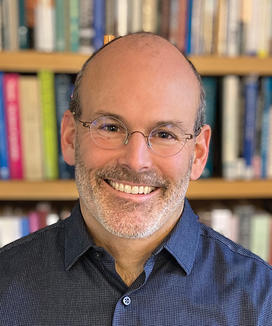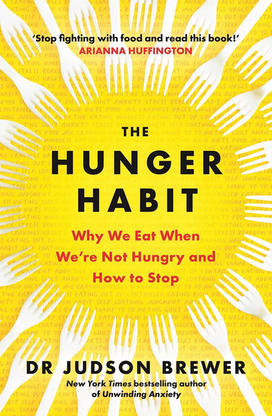Q&A: Jud Brewer ’96 on Kicking the Hunger Habit
Willpower doesn’t work, says Brewer, director of research and innovation at Brown University’s Mindfulness Center

Dr. Jud Brewer ’96 has a tip for anyone trying to white knuckle their way to healthier eating or weight loss: Willpower doesn’t work. Brewer, a psychiatrist and neuroscientist, is director of research and innovation at Brown University’s Mindfulness Center. He studies how to use mindfulness to treat addictions and kick habits, and covered this in his new book The Hunger Habit. PAW spoke with Brewer about diets, eating more mindfully, and an enduring, albeit unappetizing, Princeton food memory.
We all know the basics: Eat when you’re hungry, stop when you’re full. So why don’t we?
That’s literally the billion-dollar question. It comes down to this: Our feeling body is much stronger than our thinking brain. Yet we think, “Oh, I just need to come up with the right formula.” So if you ask yourself, “Why can’t I just think my way out of this mess?” the bottom line is that’s not how our brains work. And that’s where willpower comes in. From a neuroscience standpoint, the equations for forming and breaking a habit don’t include willpower at all. They’re all about reward value. We set the reward value for a behavior. We set that as a habit so we can make decisions quickly throughout the day. Habits are automatic behaviors. You have to tap into that equation to change a habit. And there is one way to do that, which is through awareness.
So is dieting necessary or is awareness enough?
It really depends on the person, but I can give some general guidelines. If people only focus on the diet, on the “what I should eat,” I say good luck because they’ve probably tried everything before, and the diet industry preys on people looking for the newest thing because the last thing has failed. That’s not to say that focusing on what we eat isn’t helpful. But if we don’t focus on the underlying mechanism, focusing on what we eat ultimately will fail for most people. The best place to start is learning how our brains work by focusing on the mechanism of what it feels like when we eat certain foods and amounts.

Some people take prescription drugs such as Ozempic and Wegovy for weight loss. Is mindful eating still necessary for them?
Well, those medications are an ongoing experiment. There were a number of weight loss drugs that were heralded as miracles and then pulled from the market because five years in, they found they were really dangerous. Fen-phen is a good example of that. I’m not saying that’s the case for these medications. Hopefully we’ve learned something over the years. But learning how our brain works is helpful for everyone.
What’s a favorite food or eating memory from your Princeton days?
My sophomore year, I lived in Holder. There were four of us who played what we called “the crazy fluids game.” At the end of the meal — it was usually dinner — we would fill one of those 8-ounce juice glasses with anything that was fluidlike. We mixed milk and orange juice, so the milk curdled, soda, hot sauce, random liquids from the salad bar, and anything else that met the inspiration of the moment. Then we’d play a foosball game, and whichever team lost had to either drink it or pour it on their heads.
That sounds so gross.
Yeah, it was pretty gross, and it was very motivating to win the game. I got good at foosball very quickly.
Interview conducted and condensed by Katherine Shaver ’91.











No responses yet